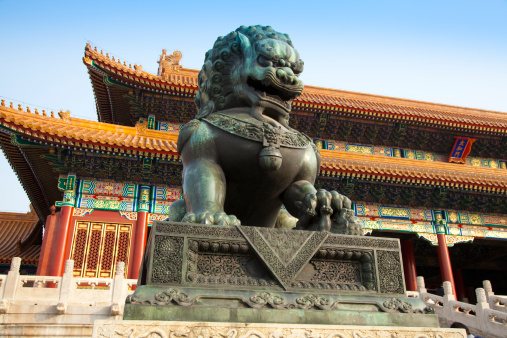Manufacturing in China contracted this month, according to the HSBC Purchasing Managers’ Index (PMI), a preliminary reading of manufacturing activity. The figure came in at 49.6. Any number below 50 means activity is shrinking. At about the same time, research firm Markit reported its Flash Eurozone PMI Composite Output Index was at 47.7 for May. These numbers show that the two economies are in recession, although the term applies much differently to China than to the eurozone.
Chinese officials expect its economy to grow at a 7.5% rate this year, based on gross domestic product (GDP). That is extraordinarily low in the context of the double-digit improvement that has marked most of the past decade. Even during the 2008-2009 global downturn, China’s GDP defied gravity.
However, China’s businesses and its huge middle class may have begun to adjust to a new reality, which is one in which an appetite for exports has dwindled. Because China tends to make optimistic reports about its economy, the slowing may be much greater than the People’s Republic will admit. A drop in manufacturing will affect the middle class, because their jobs, and especially increases in wages, depend on factory expansion. Anxiety about pay almost certainly will trigger a drop in consumer activity, which is supposed to be the new engine of China’s GDP growth
China has begun to be at a disadvantage as other nations seek places to locate factories or buy goods from factories controlled by central interests. Some of the parties who used to rely on China’s low cost of labor have started to turn to nations with even lower wages, such as Mexico and Vietnam. It may take years for these countries to expand their manufacturing bases, but as each of these years passes, more factory activity can be moved out of the People’s Republic. China’s workers have started to demand higher pay, which eventually may undermine their job security, because higher wages only make the country less competitive as a location for manufacturing. This trend may have started already, at least if recent PMI measurements are an indication.
Europe has long been one of China’s largest trading partners, and the Markit numbers show how far away from a recovery the region is. Chris Williamson, chief economist at Markit, remarked that the May numbers showed Europe deeply mired in the second recession in five years. The details of the numbers show the trend is grave. Even Germany, the economic pillar of the European Union, posted a poor number. Markit reported the flash Germany Composite Output Index was at 49.9. Tim Moore, a senior economist at Markit, remarked that the PMI data confirmed the trouble based on Germany’s tepid 0.1% GDP expansion in the first quarter.
The definition of “recession” in China is very different than the one used in the rest of the world. The GDP expansion in the People’s Republic may be falling toward only 6%. That is not enough to sustain government plans for China’s future and the rise of its middle class.
The #1 Thing to Do Before You Claim Social Security (Sponsor)
Choosing the right (or wrong) time to claim Social Security can dramatically change your retirement. So, before making one of the biggest decisions of your financial life, it’s a smart idea to get an extra set of eyes on your complete financial situation.
A financial advisor can help you decide the right Social Security option for you and your family. Finding a qualified financial advisor doesn’t have to be hard. SmartAsset’s free tool matches you with up to three financial advisors who serve your area, and you can interview your advisor matches at no cost to decide which one is right for you.
Click here to match with up to 3 financial pros who would be excited to help you optimize your Social Security outcomes.
Have questions about retirement or personal finance? Email us at [email protected]!
By emailing your questions to 24/7 Wall St., you agree to have them published anonymously on a673b.bigscoots-temp.com.
By submitting your story, you understand and agree that we may use your story, or versions of it, in all media and platforms, including via third parties.
Thank you for reading! Have some feedback for us?
Contact the 24/7 Wall St. editorial team.



